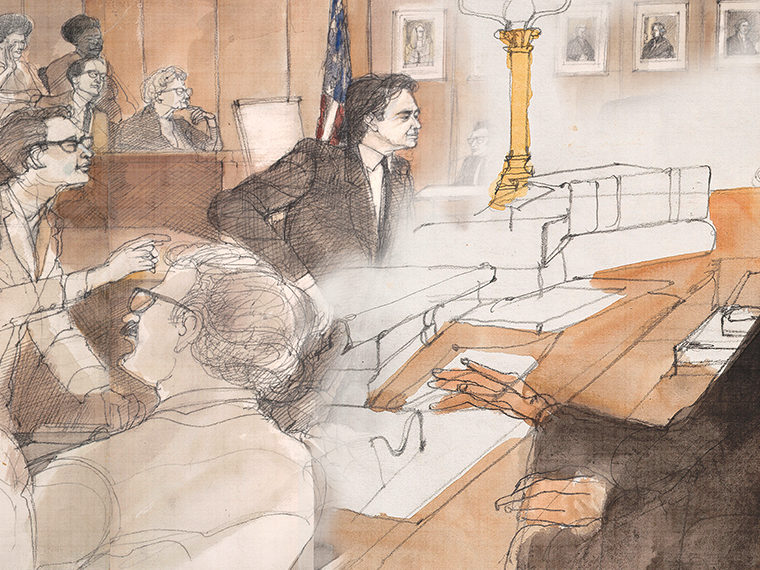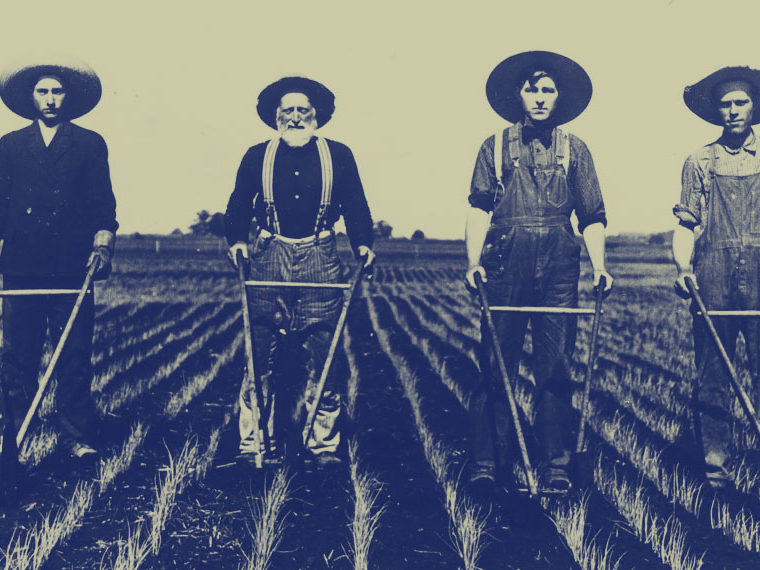In experiments, immorality and harm are deemed more extreme merely because an act was punished
In his classic “Mama Tried,” when country singer Merle Haggard needs shorthand for a boy-gone-bad, he doesn’t tell the listener a single word about the crime he committed, but rather about the punishment received:
And I turned twenty-one in prison doing life without parole
No one could steer me right but Mama tried, Mama tried.
If he’d gotten away with it, whatever “it” was, there’d be no song. But would he be as bad?
Opt In to the Review Monthly Email Update.
University of Chicago’s Jessica Bregant and Alex Shaw and UCLA Anderson’s Eugene Caruso tackle the complex relationship between the public perception of transgression and punishment, and find that the punished are viewed as guiltier than the unpunished.
In a working paper, the researchers established that punishment is “an important psychological cue.” They found that punished acts are viewed as more harmful than identical acts that are not punished, and that “punishment also conveys nuanced information about the morality of the punished action.”
In one experiment, 270 adults recruited on the crowdsourcing marketplace Amazon Mechanical Turk were asked to imagine an alien universe where the novel acts of “blicking” and “gomping” occur (with no explanation of what those terms mean). Participants were sorted into one of three conditions: some were told blicking or gomping was punished/not punished, others were told an act was disliked or not disliked (an insight into moral judgment). In the last condition, participants were presented a mashup of those scenarios: An alien is disliked when she blicks another alien but is generally not punished. An alien who gomps is not disliked but is generally punished.
All participants were asked to rate the level of moral wrongness, and the harm inherent in an act.
Among participants presented with the punished/not punished scenario, 90 percent reported that the act that was punished was more morally wrong than the same act that was not punished. If you’re going to blick and gomp, get a good lawyer.
On a scale of 1 to 7, the punished act was rated significantly more morally wrong: 5.02 on average for the punished act versus 2.54 for the unpunished. Nine out of 10 participants rated the punished act as more harmful.
Participants given the disliked/not disliked framing followed a similar pattern. More than eight in 10 chose the disliked act as more morally wrong, and an equal number said the disliked act was more harmful.
In the “conflicted” group, things got murkier. Forty-three percent said the act that is disliked but not punished was morally worse; 42 percent said the act that is punished but not disliked was morally worse. The remaining 15 percent rated it a toss-up. Yet 65 percent of participants rated the punished (but not disliked) act as more harmful.
“When punishment information conflicted with information about what was disliked by others, participants regarded the punished action as more harmful but not more morally wrong than the disliked action,” the researchers write. “Thus, although punishment and dislike appear to be equally good at expressing that an action is morally wrong, punishment appears to be a better cue that an action is harmful.”
Another experiment presented 404 participants with four scenarios with a more earthly bent: taking home for personal use something your employer plans to throw away, carrying a switchblade, taking a shortcut through private property with “no trespassing” signs and bringing firewood from another part of the country into a state park. Participants were randomly told two of the acts were punished, and two were not. They were then asked to rate the harm and moral wrongness on a scale of 1 to 100.
Punished actions were rated more harmful than non-punished, with an average score of 36 versus 29. Punished actions were also deemed more morally wrong, with an average score of 40 versus 33.4.
That we downgrade the harm of unpunished acts has potentially broad societal impact.
The authors note federal regulators’ kid-glove treatment of banks and mortgage lenders in the wake of the financial crisis. The too-big-to-fail institutions were routinely allowed to “neither admit nor deny” culpability of business practices that mocked prudence, while millions of homes were foreclosed on. “Our results may suggest that the costs of these agreements could be more than previously believed,” the researchers observe. “The idea that, as some have quipped, a financial institution may be ’too big to jail,’ even when it is accused of serious wrongdoing, may resonate in the public psyche.”
Indeed, that lack of punishment echoes in the “economy is rigged” zeitgeist that resonated in the 2016 presidential election and beyond.
The Black Lives Matter movement is another manifestation of how a lack of punishment can shape public perception. “When people perceive that violence by police officers goes unpunished, they may infer that the police action was less harmful — even if that action resulted in someone’s death,” write Bregant, Caruso and Shaw.
Similarly, domestic violence and sexual assault “may be viewed as less harmful when they are not punished, which could in turn reflect poorly on victims and lead to even lower rates of reporting a punishment.”
Featured Faculty
-
Eugene Caruso
Associate Professor of Management and Organizations and Behavioral Decision Making
About the Research
Bregant, J., Caruso, E.M., & Shaw, A. (2018). Crime because punishment? The inferential psychology of morality and punishment.






